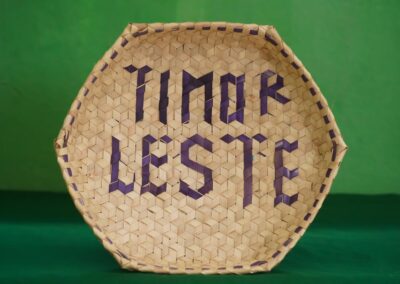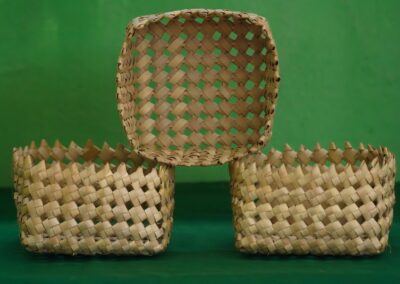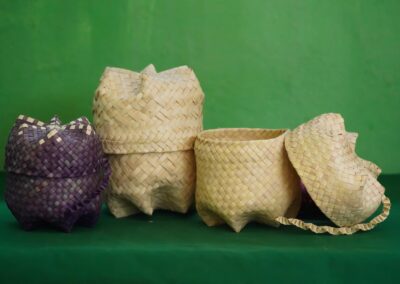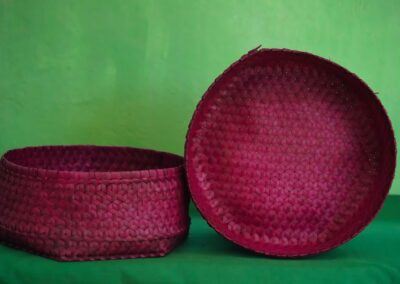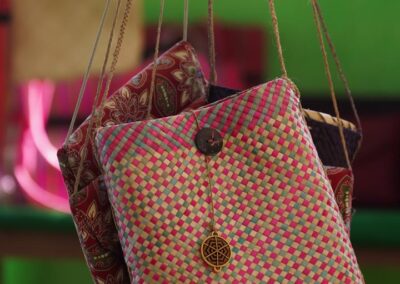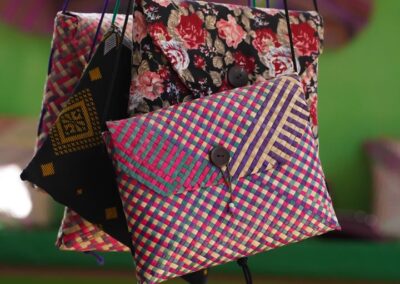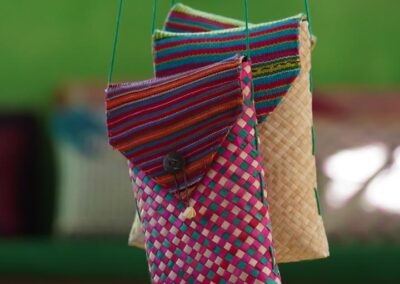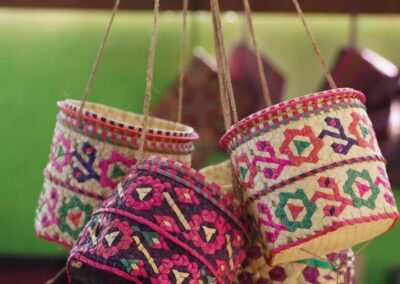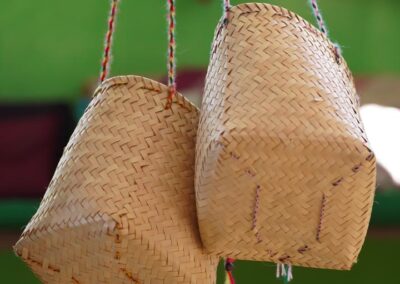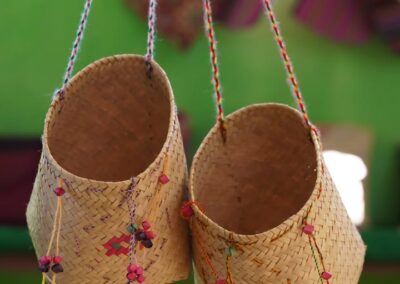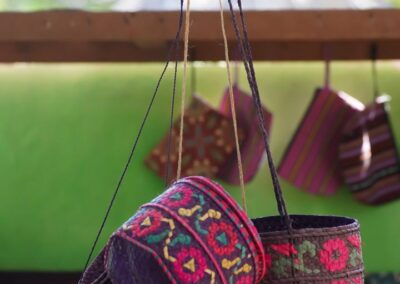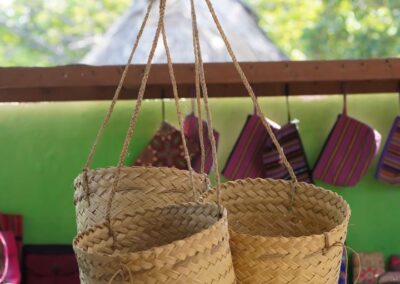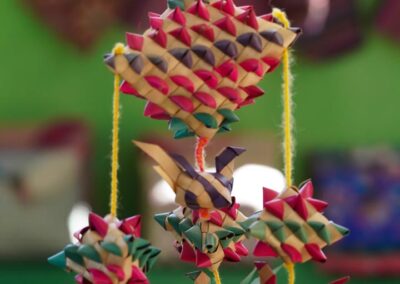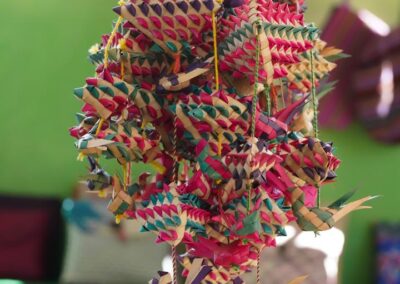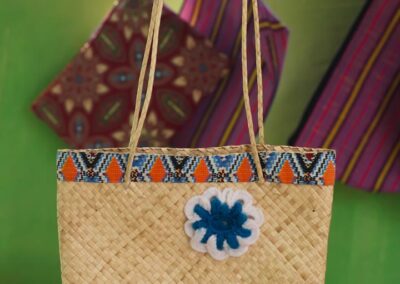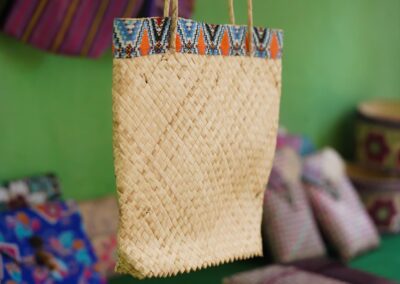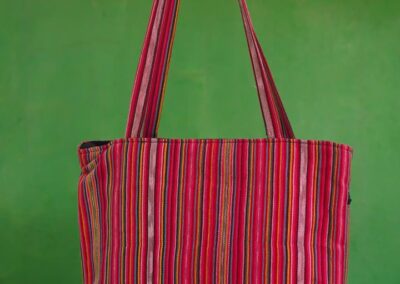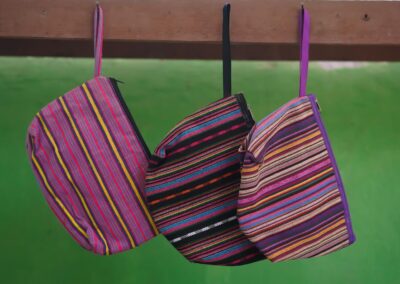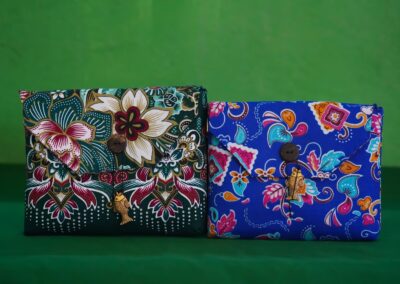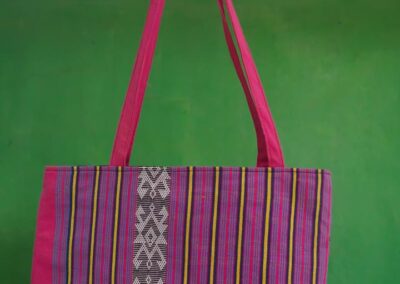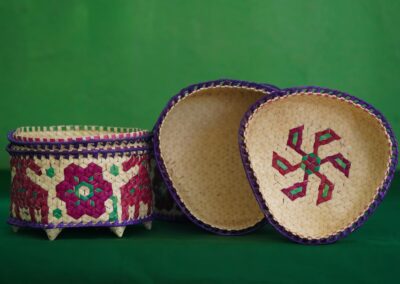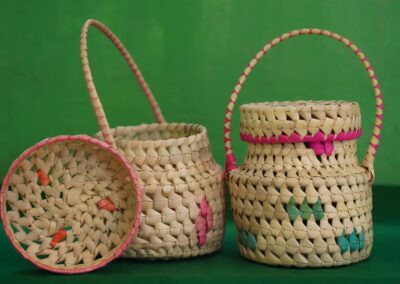Moris Dame

Maubara Administrative Post, Vaviquinha Village, Likisa, Timor-Leste
+ 670 7735 3028
About

Product: Woven products
Homan, a revered traditional weaving technique, serves as a remarkable method for creating a wide array of traditional products. Baskets, rice baskets, small boxes, and more are skillfully crafted using this technique, each with its own unique purpose and significance. These products hold diverse functions, including their use in cultural ceremonies to hold sacred or cultural gifts during the dowry payment for marriage.
In everyday life, these intricately woven products find practical applications within households, catering to individual needs. Women utilize baskets to transport produce harvested from the fields, while wallets serve as convenient storage for money and small essentials. Small boxes are employed for keeping tobacco, exemplifying the versatility of these woven creations.
Palm tree leaves form the primary material for crafting these remarkable products, occasionally supplemented by other resilient weeds, such as boro-tahan. To infuse the products with vibrant colors, natural tinting materials are employed, resulting in a kaleidoscope of hues. Handmade with meticulous care, the production of these items relies solely on traditional techniques.
The time required for production varies depending on the specific product and the size of the leaves used. Some items may be crafted swiftly, while others demand a more time-intensive process, taking into account the intricacy of the design and the scale of the finished product.
Homan weaving not only showcases the ingenuity and artistic skills of the weavers but also embodies a profound connection to cultural heritage. These handcrafted creations, with their natural materials and meticulous craftsmanship, offer a glimpse into the rich traditions of Timor-Leste, celebrating its history and the resourcefulness of its people.
Group Profile
In the year 2000, Maria da Costa Cabral founded the Moris Dame Group with a vision of upholding and revitalizing the traditional products crafted by their ancestors, which held deep significance. With unwavering dedication, the group has thrived under Maria’s leadership, currently comprising 15 highly skilled women who have become renowned for their exceptional weaving abilities.
Maria’s commitment to preserving cultural heritage extends beyond the Moris Dame Group, as she also serves as the General Coordinator for all the artisan groups within the municipality of Liquica. This role further amplifies her influence, enabling her to foster collaboration and support among various artisan communities.
At the heart of the Moris Dame Group’s mission lies the preservation and promotion of traditional weaving techniques passed down through generations. By perpetuating these time-honored skills, they breathe new life into the exquisite products crafted by their ancestors, safeguarding a precious cultural legacy.
Under Maria’s guidance, the group continues to weave a tapestry of artistry and cultural pride. Through their collective efforts, they not only preserve ancestral knowledge but also empower the women involved, fostering economic independence and social cohesion within the community.
The Moris Dame Group stands as a testament to the profound impact that individuals like Maria da Costa Cabral can have in preserving and revitalizing traditional craftsmanship. Their work serves as a reminder of the rich cultural heritage that exists within Timor-Leste, nurturing a sense of pride and resilience that transcends time.
Handicrafts


